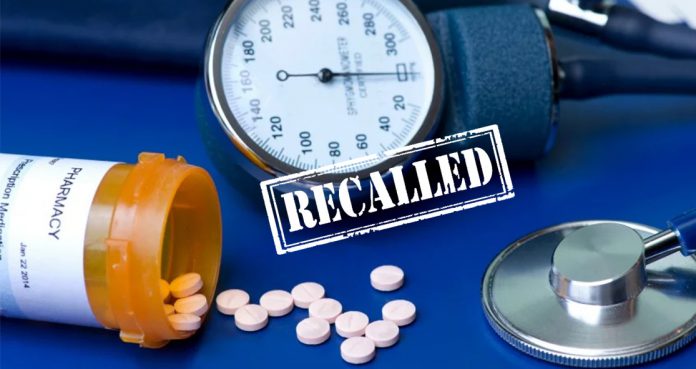On Friday, the U.S. health regulators said they found a third carcinogen in some blood pressure pills recalled by India’s Hetero Labs Ltd., adding to the global recalls of antihypertensive drugs belong to the class of drug Angiotensin II Receptor Blockers (ARBs).
A spokeswoman from the FDA said the agency has been also looking into whether these cancer-causing toxins could be found in other classes of antihypertensive agents.
The carcinogen called N-Nitroso-N-methyl-4-aminobutyric acid (NMBA) has been found in 87 lots of Hetero’s losartan potassium pills, which was not found in the drugs that were previously recalled.
The FDA has mentioned that Torrent Pharmaceuticals Ltd. is expanding its recall to include 114 additional lots of medications containing losartan due to unacceptable amounts of NMBA in the losartan that is manufactured by Hetero Labs Ltd.
Global recalls of some blood pressure drugs were suspected to contain two possible carcinogens – N-nitrosodiethylamine (NDEA) and N-nitrosodimethylamine (NDMA). The drugs, including losartan, irbesartan and valsartan, belong to a class of therapeutic agents called ARBs.
The FDA said that the risk of cancer in patients exposed to NMBA (the new impurity) appears to be the same as those exposed to NDMA and NDEA.
The recalls began last year after the FDA found that the ingredients used by Zhejiang Huahai Pharmaceuticals Company, a Chinese manufacturer, in valsartan contained carcinogens.
Since then, drug manufacturers, including Mylan NV, Teva Pharmaceutical, and Novartis’ Sandoz, have recalled their products that are suspected to contain tainted ingredients.
The FDA, in January, warned of additional shortages of antihypertensive drugs in the U.S. due to the recalls. The drug regulatory body also said it has been working to produce and develop testing methods to identify other carcinogens.






















